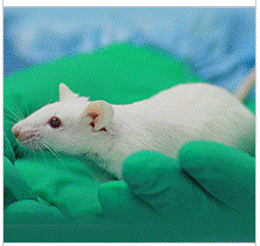Transgenic Rats: The Future of Animal Research
Routine animal research--which includes testing drugs, cosmetics, and other products to ensure that they are safe for humans--requires the use of animals. This can be a difficult process because it often results in the death of animals that cannot be saved. A new technology called transgenic rats could change this all so that tests can be repeated with no harm to lab subjects.
What Are Transgenic Rats?
Transgenic rats are rats that have been genetically modified to carry a different gene. This changes the way they look, act and feel. They're often used in experiments because they won't get sick or die so easily which makes it easier for research studies to go on without any complications.
How Are They Created?
Researchers insert a gene into a single-cell embryo and grow them all the way up to adulthood. This process, known as Transgenic Rat Technology, is largely dependent on the use of fluorescent proteins. Transgenic rats are created by taking cells from one animal and combining them with the DNA of another animal. This is a controversial process because it is possible to create a new species by tweaking genes in this way.
Many people are questioning the ethics of this research, but animal studies are necessary because they provide information to better understand human diseases. Rats and mice are commonly used because they have a short lifespan, making it easier to conduct long-term experiments. Other animals, like dogs and cats, can also be used for experimenting with new drugs. The use of transgenic animals has exploded in the last few decades with one main goal: To produce animal models for human diseases. With the help of transgenic rats, scientists can now create rodent models for many different human diseases including cancer. However, scientists have only made limited progress in understanding how these animals react to cancer and what factors might be at play.
Transgenic rats are an important tool in animal research. These genetically-modified animals have provided a wealth of information about the human body and the diseases it can suffer from. In the future when animal research becomes more difficult and expensive, we will use transgenic rats to do some of the heavy liftings.

Comments
Post a Comment